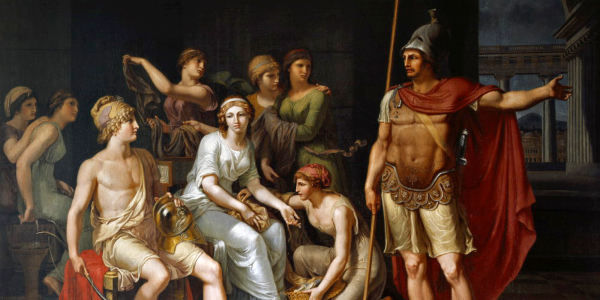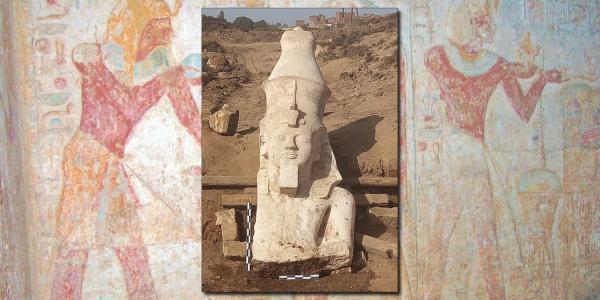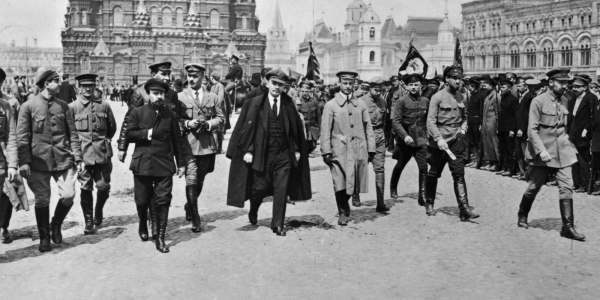In his Distinguished Research Lecture Nov. 28, Professor Kirk Ambrose will discuss how institutions used art to authenticate religious relics, as well as condemn counterfeiting
During the Middle Ages in Europe, religious relics were highly prized—not just by individuals, but also by institutions. Possessing them could bolster prestige and wealth, as well as enhance spiritual credibility.
So, the temptation to forge relics and make fake claims about them was strong. In fact, the years between 1000 and 1150 CE are called the “golden age of medieval forgery.”
How did institutions strengthen their claims to possess authentic relics? Kirk Ambrose, a University of Colorado Boulder professor of classics and founding director of the Center for Teaching and Learning, will explore this question in a Distinguished Research Lecture from 4 to 5 p.m. Nov. 28, with a question-and-answer session and reception following.

Kirk Ambrose will give a Distinguished Research Lecture at 4 p.m. Nov. 28.
Ambrose will discuss relics and authenticity claims through the example of the French monastery of Sainte-Foy, Conques, examining how this community used the visual arts to advance their claims and condemn those who engaged in counterfeiting.
About Kirk Ambrose
Ambrose earned master’s and doctorate degrees in the history of art from the University of Michigan, Ann Arbor, after earning a bachelor’s degree in art history from Oberlin College.
He specializes in the art and architecture of medieval Europe and has published four books and dozens of scholarly articles on the topic. In partnership with Steven Martonis, exhibitions manager in the CU Art Museum, he curated two exhibitions on the art of the American West at the CU Art Museum, including “Pioneers: Women Artists in Boulder, 1898-1950,” which was the basis for a feature-length documentary film. He served seven years as the chair of the Department of Art and Art History and a term as editor-in-chief of The Art Bulletin, the journal of record for art historians in the United States.
Among other research projects, Ambrose is working on a book provisionally titled The Frailty of Eyes, which connects medieval studies and art history with the rich theoretical concerns of disability studies. His published books include The Marvellous and the Monstrous in the Sculpture of Twelfth-Century Europe and The Nave Sculpture of Vézelay: The Art of Monastic Viewing.
In 2019, Ambrose helped launch the CU Boulder Center for Teaching and Learning, which develops and supports CU’s teaching community of practice. Its foundations are grounded in research-based practices, inclusive pedagogy, and equitable assessment techniques.
“Much of my work as a medievalist has focused on the production and reception of knowledge within communities, especially monastic communities,” Ambrose told Lisa Lampert-Weissig of the University of California-San Diego. “I think that has positioned me to regard teaching less as an isolated activity of a teacher transmitting knowledge to a group of students, than as a deeply collaborative enterprise.
Who: Professor Kirk Ambrose of the Department of Classics
When: 4-5 p.m. Tuesday, Nov. 28
Where: Chancellor’s Hall and Auditorium, CASE
“To my mind, this works on a number of levels. Teachers collaborate with their students to advance learning. Teachers collaborate with one another to share effective practices. And our center serves as a space that collaborates with units and specialists from across campus to support educators in achieving their goals.”
About the Distinguished Research Lectureship
The Distinguished Research Lectureship is among the highest honors given by faculty to a faculty colleague at CU Boulder. Each year, the Research and Innovation Office requests nominations from faculty for this award, and a faculty review panel recommends one or more faculty members as recipients.
The lectureship honors tenured faculty members, research professors (associate or full) or adjoint professors who have been with CU Boulder for at least five years and are widely recognized for a distinguished body of academic or creative achievement and prominence, as well as contributions to the educational and service missions of CU Boulder. Each recipient typically gives a lecture in the fall or spring following selection and receives a $2,000 honorarium.
Ambrose and Rebecca Safran, a professor of ecology and evolutionary biology, have been recognized with 2023-24 Distinguished Research Lectureships. Safran will deliver her Distinguished Research Lecture on Tuesday, March 12.
Top image: the reliquary statue of St. Foy (photo by Holly Hayes)
Did you enjoy this article? Subcribe to our newsletter. Passionate about classics? Show your support.



